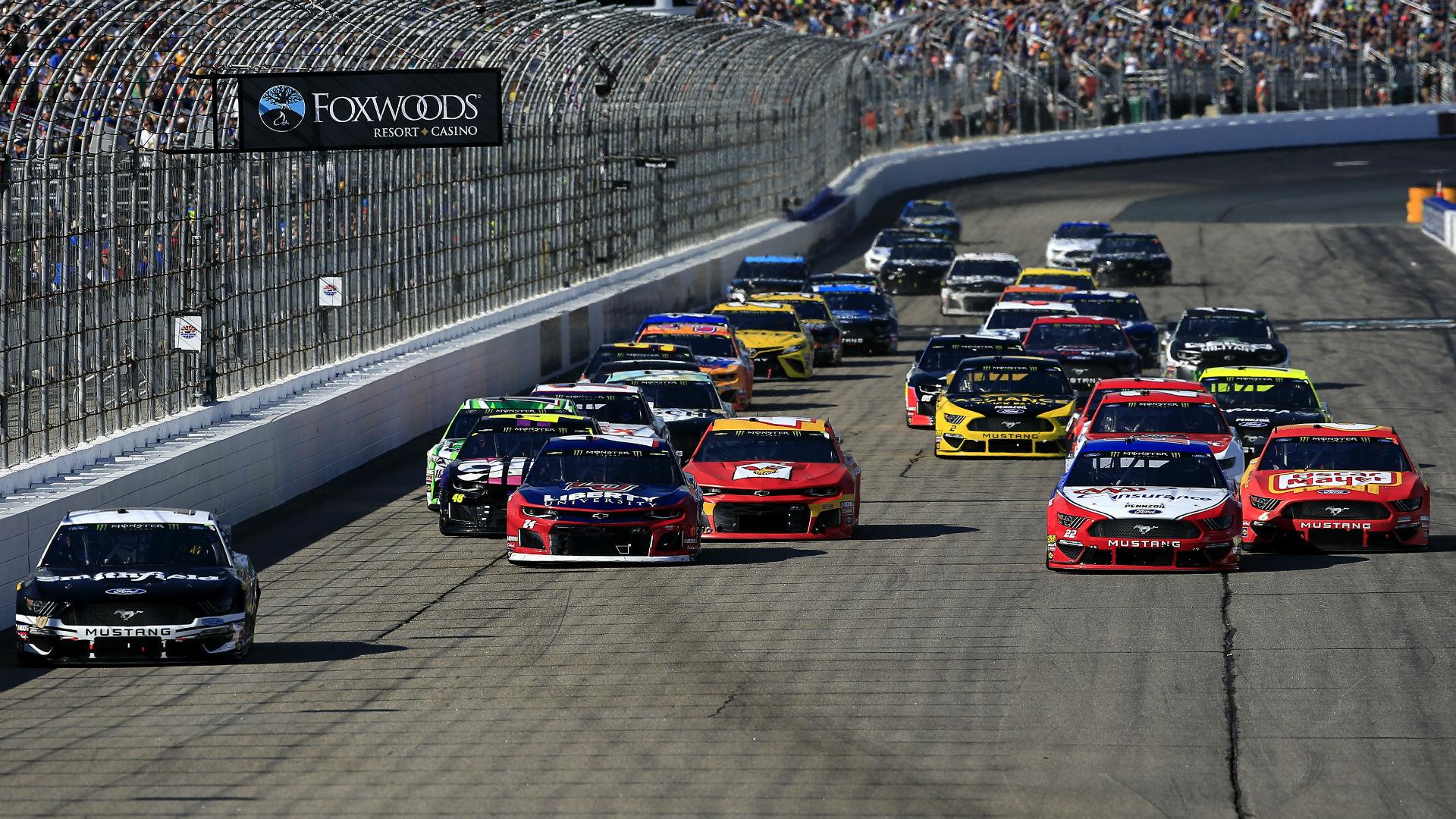
Breaking: NASCAR Set New Rule that Override Kansas incident, which affected two key drivers…See Details
A NASCAR official said Tuesday that the sanctioning body will examine a rule in the offseason that has sidelined two drivers in recent weeks after wrecks despite pleas to take their cars back to pit road for repairs.
NASCAR ruled that Josh Berry was done for the day after a Lap 1 incident last weekend at Kansas Speedway instead of towing his car back to pit road so he could continue.
Brad Moran, NASCAR Cup Series managing director, said Tuesday on SiriusXM NASCAR Radio “it didn’t feel right or look right, but (the rule) was done correctly. Again, it’s something we’ll review over the winter and it may change.”

Berry was involved in a crash that collected Ty Dillon, Jimmie Johnson, Harrison Burton and Chase Elliott.
Contact between cars turned Burton into Berry’s car. Burton’s car hit Berry’s car in the right rear. The contact knocked the rear of Berry’s car briefly off the ground. Berry’s car than slid down the backstretch and came to a stop. His tires were flat and he wanted a tow to pit road so the team could put new tires on the car and continue.
Instead, NASCAR ruled him out of the race.
“That was an experience like none other,” Berry said afterward. “Obviously, we got clipped and spun, and we had four flat tires. I assumed they were going to tow the car to the pits, which is what I was asking for, and then they dropped my window net and told me to get out.
(Crew chief) Rodney (Childers) told me to stay in because all we needed was tires. They were telling me to get out. Then they towed me into the campground, so I was just out there chilling with the fans. At that point, they said they had to get a rollback, and they finally made me get out.”

Moran explained on “The Morning Drive” why Berry was eliminated instead of being allowed to go to pit road.
“The hit was hard enough on (Berry’s) car to lift the car off the ground, slam it down on the ground,” Moran said. “Once you’re involved in a (Damaged Vehicle Policy) accident — and by the way the (incident data recorder) did go off, so it was significant incident that (Berry) was in — if he couldn’t drive the car back, he was out due to DVP.
“We don’t inspect (the car), obviously on the side of the track. We haven’t got that ability, but the indicator is, you drive it back, you’re good (to continue). If, however, he just spun and had four flat tires, he would have been towed to pit road under yellow under the flat tire recovery program. But it’s really clear on our recovery program in our (Damaged Vehicle Policy) that if you’re involved in an incident, you have to be able to get your vehicle back to pit road.
“If it’s just sitting there flat tires, you spun out, we’ll even give you a light scuff (in contract), that would be one thing, that vehicle would have been towed in. … From the reports I had the car really wasn’t damaged and probably could have participated.
“We never want to take vehicles out of the race and that is our rule. It’s similar to what happened to (Ryan Blaney at Watkins Glen), but he did have a mechanical issue. Unfortunately, you just don’t have the ability to inspect that. It’s more if the car, if they can drive it back or not.”
Blaney was involved in a crash on the opening lap in the Watkins Glen playoff race and attempted to drive back but couldn’t. He wanted a tow to pit road to allow his team to assess the damage but NASCAR, following the Damaged Vehicle Policy directive, ruled Blaney was out of the race since he could not drive his car back to pit road after the contact.
Since Michigan in August, teams have been given the option to install a system that will allow an official at the crash site to pump in air to help raise the car so it can drive back when it has flat tires after an incident. Moran said Berry’s car did not have that system at Kansas.
Moran noted on SiriusXM NASCAR Radio that the rule has been in place since 2017 and was done in collaboration with the teams.
“We looked at it last off season,” Morgan said of potentially adjusting the rule. “We’re going to take a much harder look (this offseason). We’ve got a couple of samples that we don’t really like and we’re going to go back and take a hard look at it and get with the industry and see if there’s a modification that we can do where everybody feels is fair and equitable and we can perform during a race day without affecting the race and running multiple caution laps. There’s a lot of items that need to be discussed.”
Leave a Reply